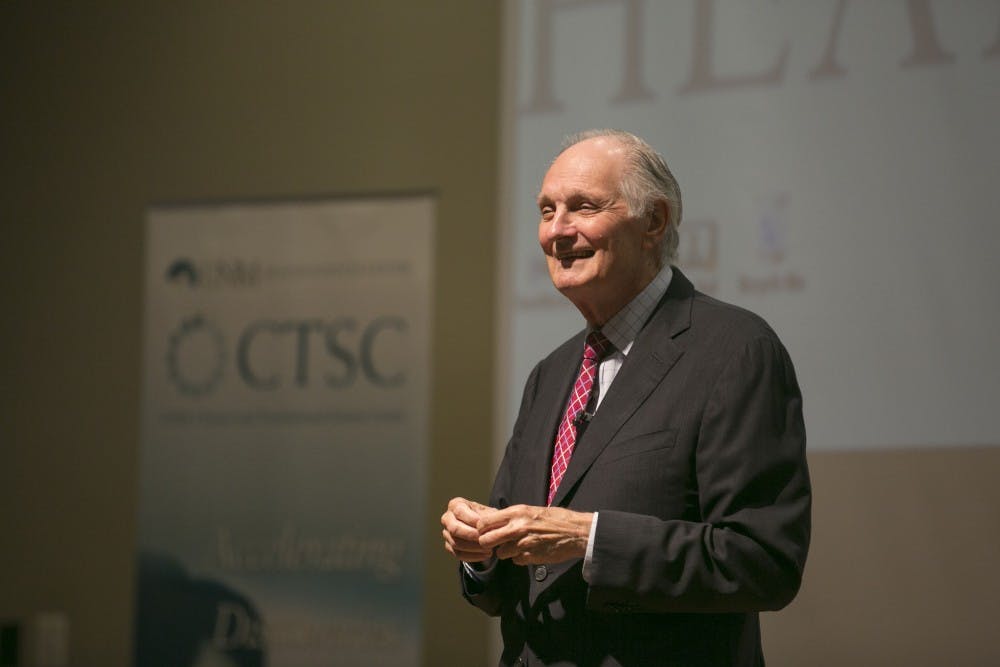Last week the UNM Health Sciences Center hosted famed actor Alan Alda, who presented on a new partnership between Stony Brook University’s Alan Alda Center for Communicating Science and the HSC.
The partnership is part of an innovative program founded by Alda that seeks to improve understanding and communication between scientists and the public by incorporating improv acting training into the routines of scientists’ explanations, thus making the information explained by the scientists easier to understand.
“It’s possible to communicate amazing things if you know how to explain them,” Alda said.
An actor known for his roles on M*A*S*H, E.R., and The West Wing, Alda first had the idea for his program after a near-death experience he had while in Chile, where he underwent an end-to-end surgical connection of his internal organs, otherwise known as an anastomosis.
“I remember (the doctor) saying part of my intestines had gone bad,” Alda said. “He explained the surgery and he put me under, and I lived. But his communication was great.”
But it may not always be that easy.
Alda said all too often doctors and scientists do not explain concepts to their patients or to the public in an understandable way, which Alda attributes to “The Curse of Knowledge,” a bias that forms in a person when they have accumulated great knowledge about a particular concept, which may hinder their effectiveness at explaining it to others.
“(It’s) when you have knowledge so in depth that you forget what it’s like to be a naive neophyte,” Alda said. “So you use language that isn’t common and you forget that most people don’t have this knowledge.”
Alda related this to an experience he had while interviewing a doctor in Boston.
He was asking her questions that she was able to answer in an understandable and personable way, akin to that of a science television show, he said. But at certain points, she changed her focus from Alda to the camera crew and almost instantly her tone changed and she began to describe the subject in an obscure sense.
“I think that what she was talking about resembled a lecture she gave,” Alda said, “so she turned to the camera and lectured the camera.”
Alda said she had to coax her back into her previous tone with questions which led her to resume communicating the subject she was explaining in a human way. He said the experience was an astonishing one.
Get content from The Daily Lobo delivered to your inbox
“I think the public is on a blind date with science,” Alda said. “We need to go from the blind stage of the relationship to the love stage.”
Alda explained that there are three stages in a romantic relationship: Attraction, infatuation, and commitment. The public has yet to establish the attraction stage of a relationship with science due to its tendency to possess the “Curse of Knowledge” bias, deterring public interest.
“What we did is we included improv into our lectures to foster attraction,” Alda said.
“We use improv, not to make actors or comedians, but for scientists to use body language so that they remember to communicate feeling; not dumbing down the language, but presenting it in a way that’s understandable and relatable.”






